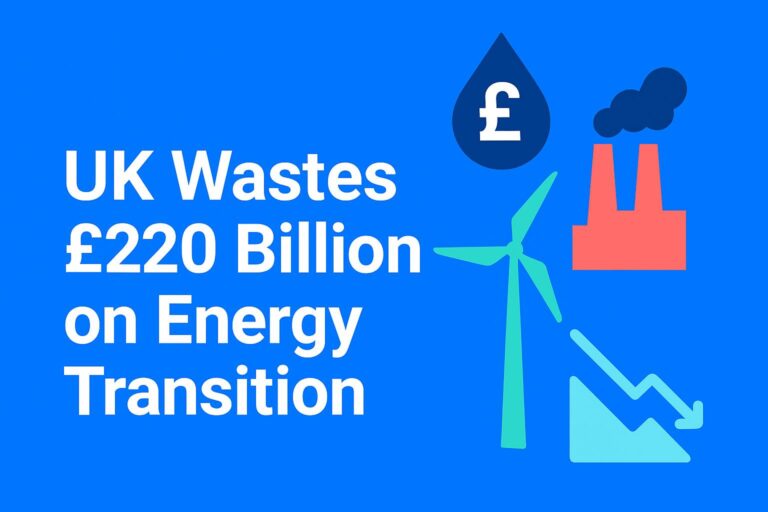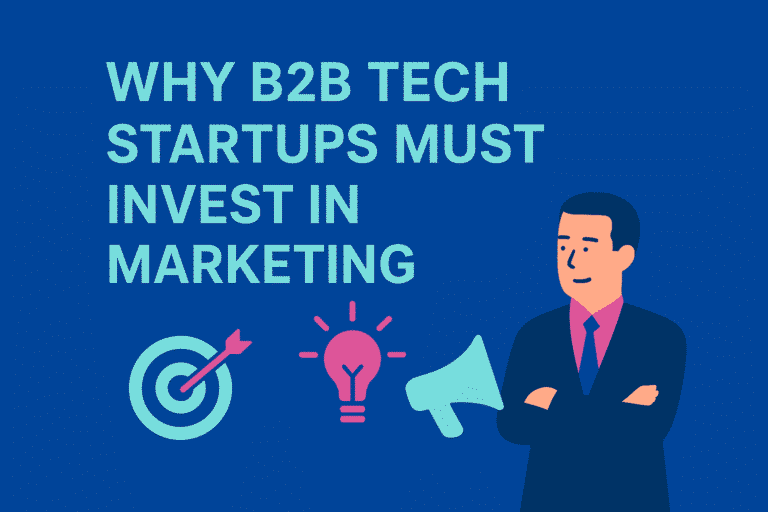The #1 Priority for Growth…
For ambitious B2B tech startups with dreams of rapid growth, marketing is never optional; it’s the number one ingredient to success. Many tech founders simply fail to understand the full importance of marketing, resulting in a marginalised and under-invested function. The Startup Genome Project, which studies startup ecosystems, has noted startups that invest significantly in customer acquisition and marketing grow faster, no surprises there. The report highlights that startups in the growth stage that prioritise marketing and customer acquisition scale faster than those that do not. Your success is directly linked to your investment in marketing and the size of that investment can dictate the pace of that growth. Marketing is essential for scaling your business because it creates the momentum needed to capture market share, attract investment and establish a lasting presence in the industry.

What’s Your Ambition?
If your goal is to double your Annual Recurring Revenue (ARR) in the next 12 months, you will need a proportional increase in investment in both marketing and sales over what it is today. If you don’t, then you may as well buy a lottery ticket and cross your fingers. Serious tech founders will increase their investment in marketing annually to improve their odds of success in line with growth targets. If you don’t take marketing seriously, then you will need to temper your growth expectations. There is little point in setting ambitious or arbitrary revenue goals at the beginning of your financial year if your marketing team remains starved of cash with limited capability to generate leads. There is only so much marketing can do with creativity and hard work alone. A sales team, operating as an independent function, will struggle to grow your startup in any meaningful way without a joined-up and dedicated marketing effort to support it.
Marketing and Sales Integration
While sales teams play a leading role in converting prospects into customers, they cannot operate successfully without a fully operational marketing function. Marketing is essential for awareness, building credibility and driving demand. Even the best sales team will struggle to achieve significant growth if these essentials are lacking. By investing in both marketing and sales, you can turn your growth ambitions into reality, accelerating the journey from fledgling startup to product-market fit, and then on to a serious market player or even a category leader. Marketing and sales integration is crucial for driving consistent growth, with both teams working towards the same objective with a unified strategy. This alignment maximises lead generation and conversion, streamlines the customer journey and accelerates revenue.
Why Marketing is Directly Linked to Your Growth
1. Demand Generation
Investment in marketing directly impacts brand awareness and demand generation. Companies with robust marketing strategies can generate more leads that can be nurtured, and the sales team can convert them into customers. Marketing campaigns connect with your target audience, which is crucial in establishing a foothold in the market.
2. Brand Awareness
Increased marketing activity enhances brand visibility, making it easier for potential customers to discover more about you and trust your brand. Effective marketing tactics help accelerate customer acquisition and establish your business as an authority in its industry. Thought leadership content, case studies and customer testimonials are key tools in building this credibility. Failure to recognise the importance of building your brand results in a lack of investment in marketing, which can lead to stagnation of the business.
3. Customer Acquisition Costs (CAC)
Increasing your marketing spend may seem like increasing CAC in the short term, but it often leads to a faster growth rate by driving higher volumes of sales, allowing you to scale your business more rapidly. Once your marketing team has established where to invest time and resources to generate leads, marketing processes can then be optimised and scaled, helping to reduce CAC over time. It’s important to focus marketing activity and spend on the tactics and channels that deliver the most success and value. While focusing attention on the tactics that work, it’s also important to reduce and cut spending in the activities that don’t support the delivery of results. In this way, even when overall marketing spend may increase, the CAC can be managed sensibly and reduced.
Educate the Market
Marketing plays THE pivotal role in educating customers about your solution and why it should matter to them. In the B2B tech sector, where products may be highly specialised or innovative, customers need some help to fully appreciate what you do, how it can help them and what the positive outcomes will be. If you don’t take them on this journey of discovery about you, they will quickly draw their conclusions and discount you. Being ignored is the death knell of the startup.
New tech startups may sell solutions that are unknown to their target audience, which is why marketing must make potential customers aware of the use cases and business benefits available to them. Marketing is the activity that helps establish your startup as a trusted player in its industry, with content and communication channels that engage and attract prospects.
Building Market Momentum
High-impact campaigns help build credibility and drive inbound interest, filling the sales pipeline with new opportunities. Activities and investments that do not positively impact brand awareness or drive pipeline growth must be regarded as a luxury and kept to a minimum, at least in the early growth stages when budgets are tight. Do you need a company-branded hoodie when your revenue is not yet covering operating costs? All marketing resources and efforts must be focused on building momentum in the market and never be distracted by nonsensical or self-indulgent activities that don’t help move the dial in improving financial performance.
Risks and Limitations if You Don’t Invest in Marketing
- Not Scalable
Relying solely on sales to grow your startup will limit growth. Sales-driven growth needs a large salesforce, which can be expensive and is difficult to scale quickly. Marketing, on the other hand, can reach a broader audience with fewer resources and funnel leads into the sales pipeline, helping sales agents to focus more effort on converting real opportunities into customers.
- Poor Awareness
Without marketing, it’s hard to create brand awareness. This can be a significant drawback in competitive markets where brand recognition is critical. Early-stage startups have no brand equity, but this is the time to build awareness and create a solid foundation to build upon.
- Fragmented Customer Acquisition
A unified approach that integrates both marketing and sales will be the most effective and resilient. For example, relying solely on a sales team to drive growth makes your startup vulnerable if sales efforts stall or if the market changes. However, working closely with marketing helps build a more robust revenue engine. With marketing communicating to the target market to create awareness and interest, salespeople can then focus on handling warm prospects to build relationships and progress opportunities through the sales pipeline. Good sales teams will also invest some of their time creating leads for themselves from existing relationships, cold calling, attending events and building their personal online profiles.
Marketing Reduces Friction in Your Sales
Without marketing, your startup risks remaining obscure in the market. Even if a sales team is highly skilled, it may struggle to gain traction if potential customers have never heard of the company or its solution. In contrast, a well-executed marketing strategy can create a strong brand presence, making it easier for sales teams to open doors and close deals. New business sales for a tech startup are the most difficult and important challenge to overcome, but a strong marketing function helps reduce friction in the sales process.
The Market Defines Your Investment Strategy
The proportion of your investment between marketing and sales may vary depending on your target market. For example, in broad markets with a large volume of target prospects, marketing will need more investment to scale its operations and extend its reach. If, however, you have a specialised niche with a small number of high-value prospects, your marketing budget may be more modest and the activity more focused. That doesn’t change the relationship between investment and the pace of growth.
You may want to read: “5 Step Guide to Crafting Your Problem Statement.”






